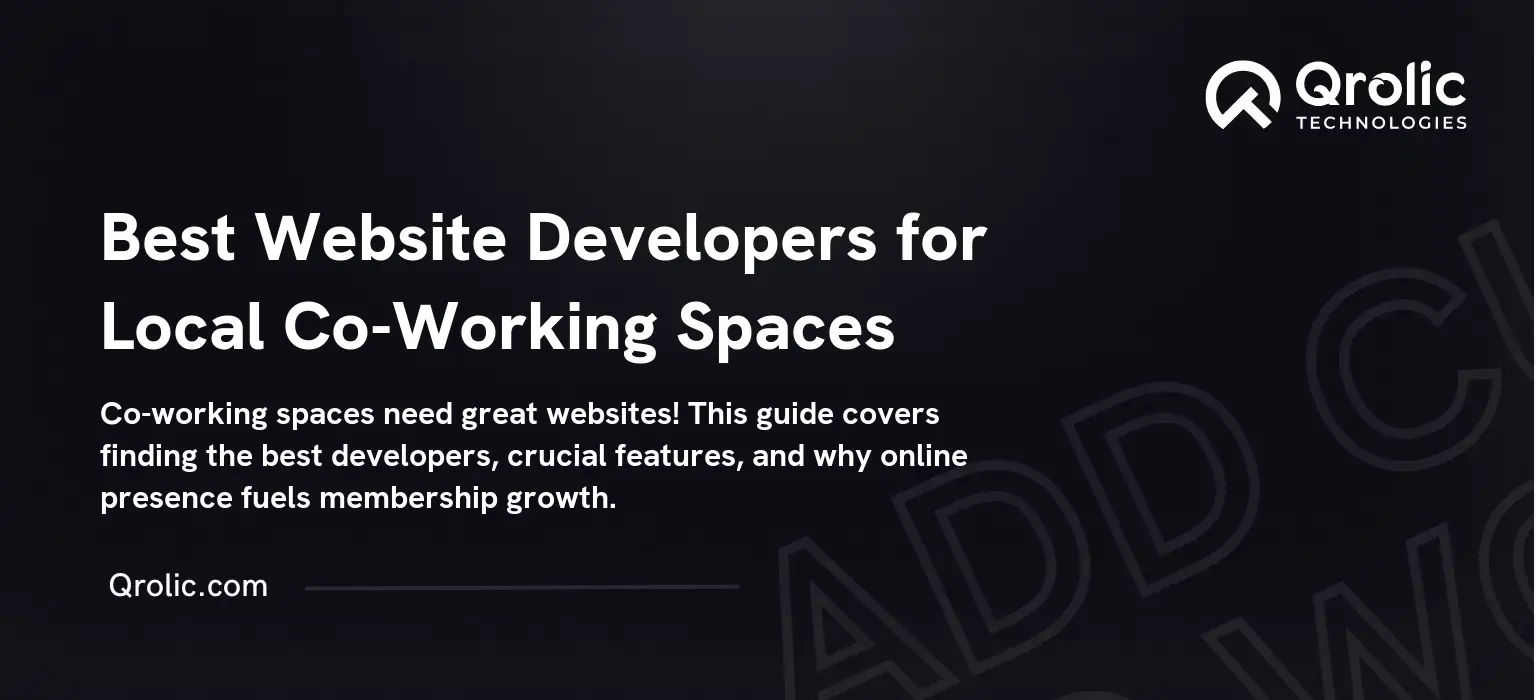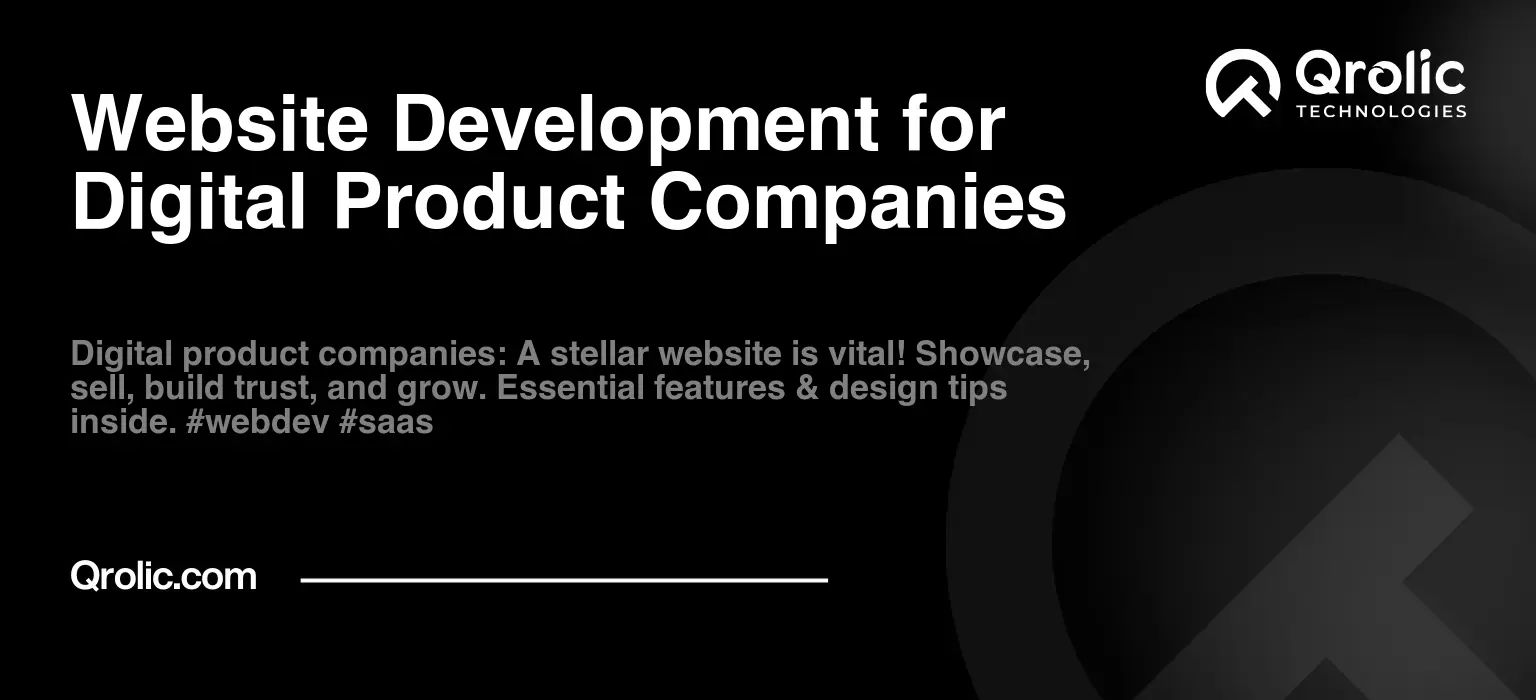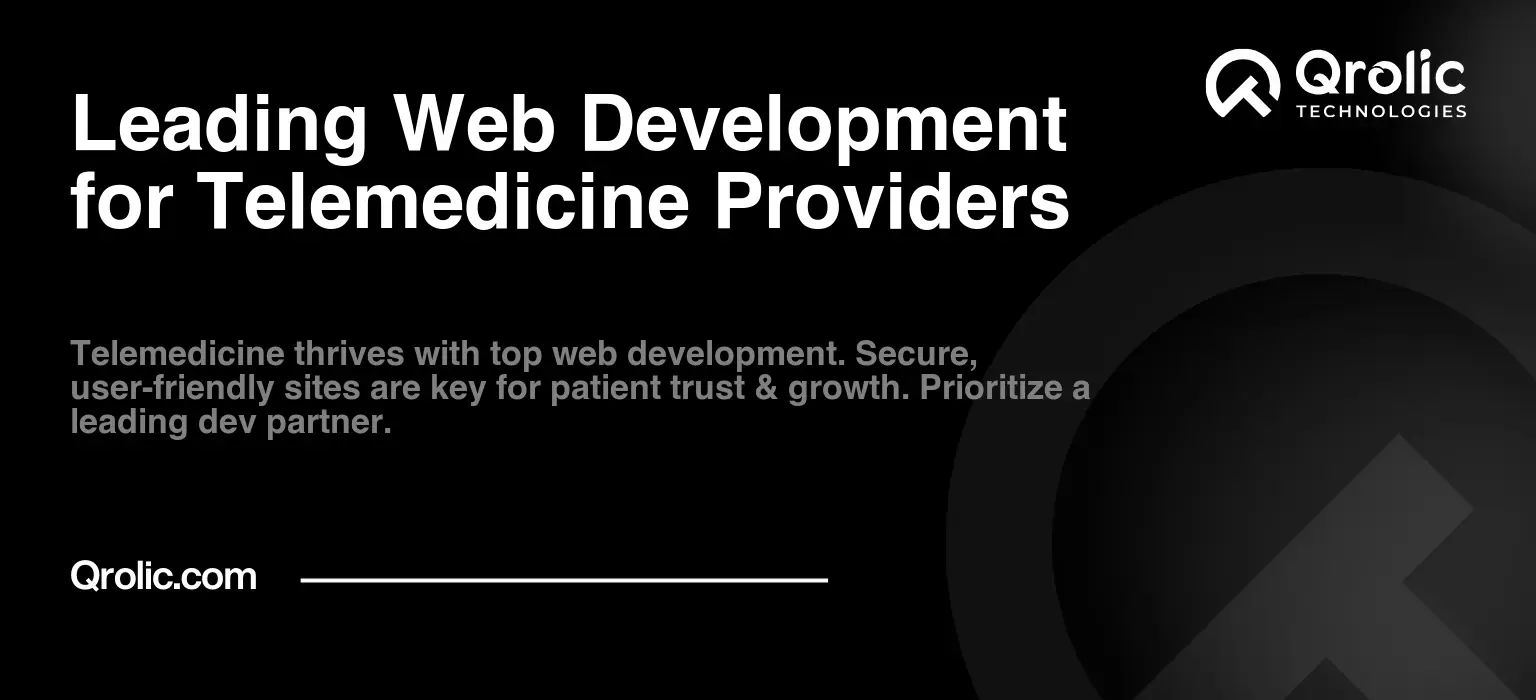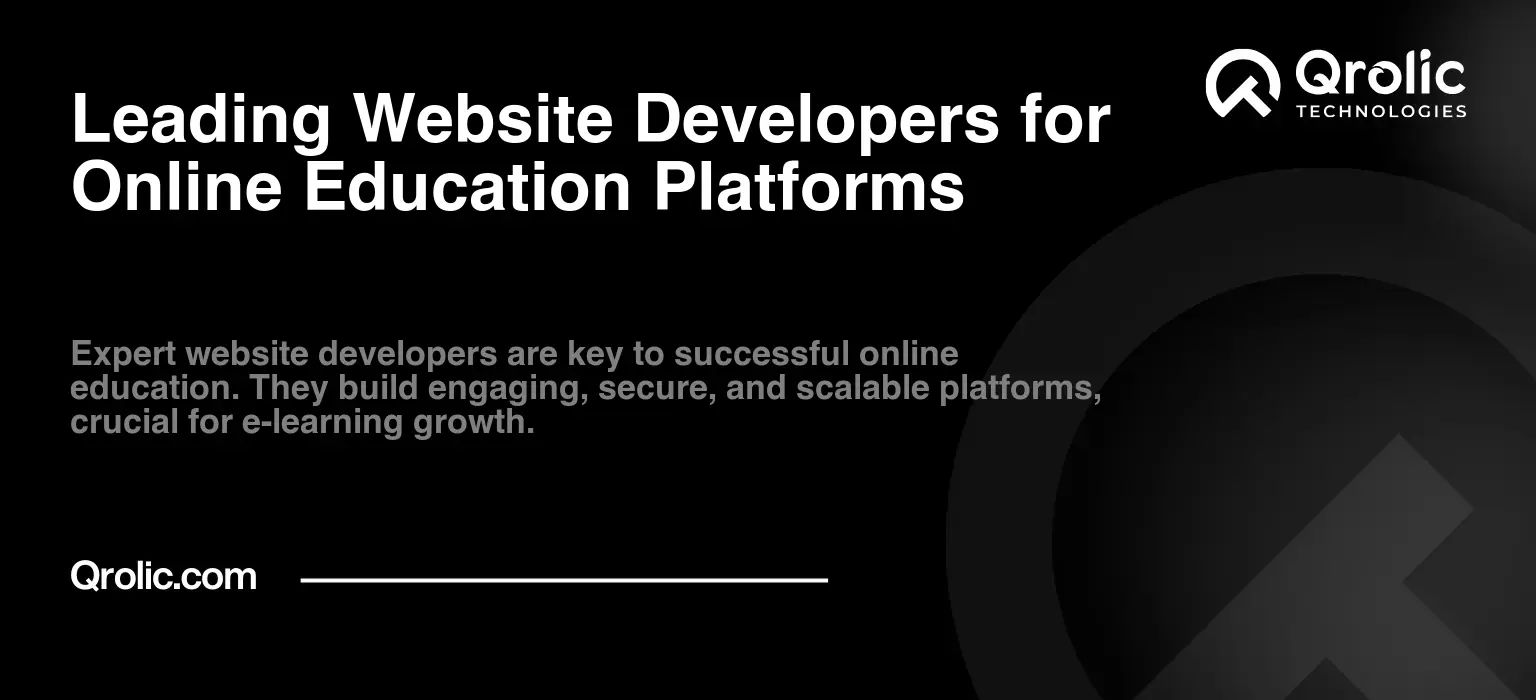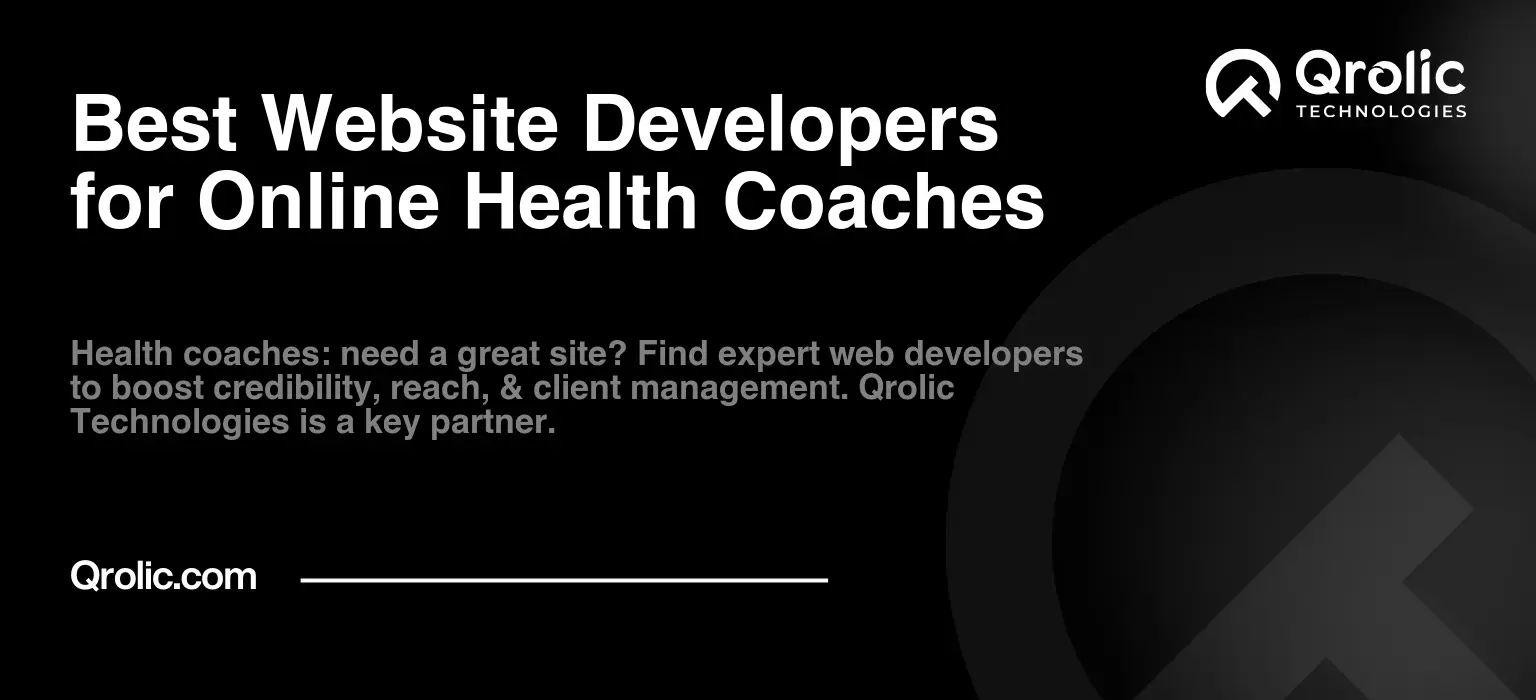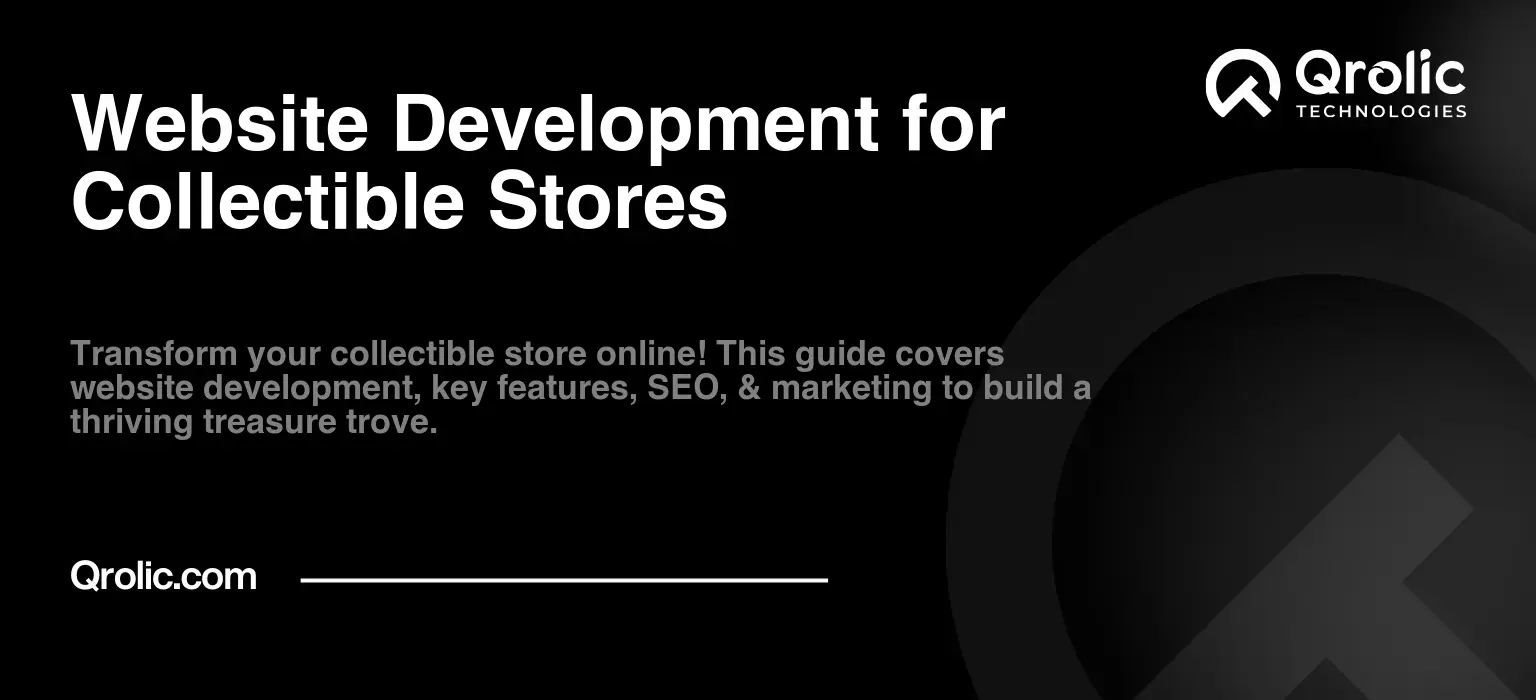Quick Summary:
- A strong utility website is essential for customer service.
- Design it user-friendly, mobile-ready, and accessible for all.
- Offer key tools like bill payment and outage updates.
- Maintain security and optimize your site for easy discovery.
Table of Contents
- The Lifeline of Connection: Why Utility Companies Need Exceptional Websites
- Beyond Bill Payments: The Multifaceted Role of a Utility Company Website
- The High Cost of Neglecting Your Online Presence
- Designing a Website That Works: Key Principles for Utility Companies
- 1. User-Centric Design: Prioritizing the Customer Journey
- 2. Essential Functionality: Providing the Tools Customers Need
- 3. Accessibility: Ensuring Inclusivity for All Users
- 4. Content is King: Providing Valuable Information
- The Technical Foundation: Choosing the Right Technologies
- 1. Content Management System (CMS): Empowering Content Creators
- 2. Hosting: Ensuring Reliability and Performance
- 3. Security: Protecting Sensitive Data
- Optimizing for Search Engines: Making Your Website Discoverable
- 1. Keyword Research: Understanding Your Audience’s Language
- 2. On-Page Optimization: Making Your Website Search Engine Friendly
- 3. Off-Page Optimization: Building Authority and Reputation
- 4. Content Marketing: Creating Valuable and Engaging Content
- Beyond the Launch: Maintaining and Improving Your Website
- 1. Regular Updates: Keeping Your Website Fresh and Secure
- 2. Performance Monitoring: Ensuring Optimal Speed and Uptime
- 3. User Feedback: Understanding Customer Needs and Preferences
- 4. A/B Testing: Optimizing for Conversions
- The Future of Utility Websites: Trends to Watch
- 1. Artificial Intelligence (AI): Enhancing Customer Service and Efficiency
- 2. Internet of Things (IoT): Connecting Devices and Data
- 3. Blockchain Technology: Improving Security and Transparency
- Qrolic Technologies: Your Partner in Building Exceptional Utility Websites
- Our Expertise
- Our Services
- Why Choose Qrolic Technologies?
The Lifeline of Connection: Why Utility Companies Need Exceptional Websites
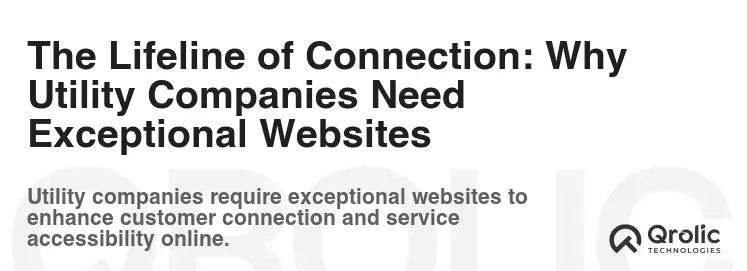
In today’s digitally driven world, a robust online presence isn’t a luxury; it’s a necessity, especially for utility companies. Think about it: where do people go when their power is out, they need to report a gas leak, or they want to understand their water bill? The answer, increasingly, is the internet. A well-designed website acts as a 24/7 communication hub, a customer service portal, and a vital link between your utility company and the community it serves. Failing to provide a user-friendly, informative, and reliable online experience can lead to frustration, mistrust, and ultimately, customer dissatisfaction. Utility website development goes beyond simply having an online brochure; it’s about building a digital ecosystem that empowers customers and streamlines operations.
Beyond Bill Payments: The Multifaceted Role of a Utility Company Website
The modern utility website transcends basic functionalities like online bill payment. It’s a dynamic platform with the potential to:
- Enhance Customer Service: Provide self-service options for common inquiries, reducing call center volume and improving customer satisfaction. Think FAQs, troubleshooting guides, and real-time outage maps.
- Promote Energy Efficiency: Offer resources and tools to help customers understand their energy consumption and adopt energy-saving practices. This can lead to reduced costs for both the customer and the utility company.
- Improve Communication During Outages: Offer real-time updates on power outages, estimated restoration times, and safety tips. This proactive communication can mitigate anxiety and build trust.
- Facilitate New Service Requests: Streamline the process for new customers to sign up for services, making it quick and convenient.
- Educate the Public: Inform customers about important safety information, regulations, and initiatives related to water, gas, and electricity.
- Build Brand Reputation: Showcase your company’s commitment to sustainability, community involvement, and innovation.
- Support Emergency Response: Provide critical information and resources during emergencies, such as natural disasters or public health crises.
- Collect Valuable Data: Analyze website traffic and user behavior to understand customer needs and improve services.
The High Cost of Neglecting Your Online Presence
Ignoring the importance of a well-designed website can have significant consequences for utility companies:
- Increased Customer Dissatisfaction: A clunky, outdated website can frustrate customers and lead to negative perceptions of your company.
- Higher Call Center Costs: Without self-service options, customers are more likely to call your call center for basic inquiries, increasing operational expenses.
- Missed Opportunities for Engagement: You miss the chance to educate customers about energy efficiency, safety, and other important topics.
- Damage to Brand Reputation: A poor online presence can damage your company’s reputation and make it difficult to attract new customers.
- Reduced Operational Efficiency: Inefficient online processes can lead to delays and errors, impacting your company’s overall efficiency.
Designing a Website That Works: Key Principles for Utility Companies
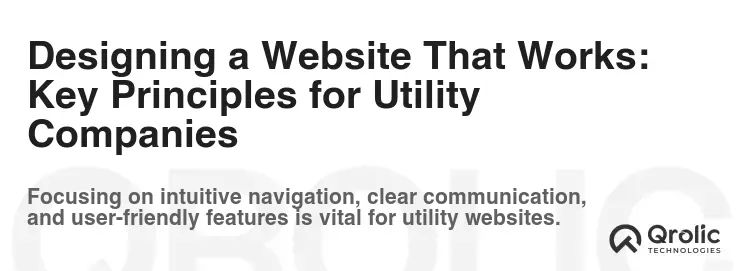
Creating a successful utility company website requires a strategic approach that focuses on user experience, functionality, and accessibility. Here are some key principles to keep in mind:
1. User-Centric Design: Prioritizing the Customer Journey
The most important aspect of any website is its user experience. Put yourself in your customers’ shoes and consider what they’re looking for when they visit your site.
- Intuitive Navigation: Make it easy for users to find what they need with clear menus, search functionality, and logical site structure. Avoid jargon and use simple, straightforward language.
- Mobile-First Approach: Ensure your website is fully responsive and optimized for mobile devices. Many customers will access your site on their smartphones or tablets.
- Clean and Uncluttered Design: Avoid overwhelming users with too much information or visual clutter. Use white space effectively to create a visually appealing and easy-to-read layout.
- Fast Loading Times: Optimize your website for speed to prevent users from abandoning your site before it even loads. This includes optimizing images, caching, and using a reliable hosting provider.
2. Essential Functionality: Providing the Tools Customers Need
Your website should provide the essential tools and resources that customers need to manage their accounts, report issues, and learn more about your services.
- Online Bill Payment: Offer a secure and convenient online bill payment system with multiple payment options.
- Outage Reporting and Tracking: Allow customers to easily report outages and track the status of repairs. Provide real-time outage maps with estimated restoration times.
- Account Management: Enable customers to view their account information, update their contact details, and manage their preferences online.
- Energy Usage Monitoring: Provide tools and resources to help customers track their energy usage and identify ways to save money.
- Contact Information: Make it easy for customers to contact you with clear contact information and multiple channels, such as phone, email, and live chat.
3. Accessibility: Ensuring Inclusivity for All Users
Accessibility is crucial for ensuring that all users, including those with disabilities, can access and use your website.
- Web Content Accessibility Guidelines (WCAG): Adhere to WCAG guidelines to make your website accessible to people with disabilities.
- Alternative Text for Images: Provide alternative text for all images so that screen readers can describe the images to visually impaired users.
- Keyboard Navigation: Ensure that your website can be navigated using only a keyboard.
- Color Contrast: Use sufficient color contrast between text and background colors to make it easy for users to read.
- Captioning for Videos: Provide captions for all videos so that deaf and hard-of-hearing users can understand the content.
4. Content is King: Providing Valuable Information
Your website’s content should be informative, engaging, and easy to understand.
- Clear and Concise Language: Use simple, straightforward language and avoid jargon.
- FAQs: Provide a comprehensive FAQ section to answer common customer questions.
- Troubleshooting Guides: Offer troubleshooting guides to help customers resolve common issues.
- Blog Posts and Articles: Share informative blog posts and articles on topics related to energy efficiency, safety, and other relevant issues.
- Visual Content: Use images, videos, and infographics to make your content more engaging and easier to understand.
Ready to Build Your Next Project?
Let’s turn your ideas into a powerful digital solution. Contact us today to get started with expert web development and design services.
The Technical Foundation: Choosing the Right Technologies
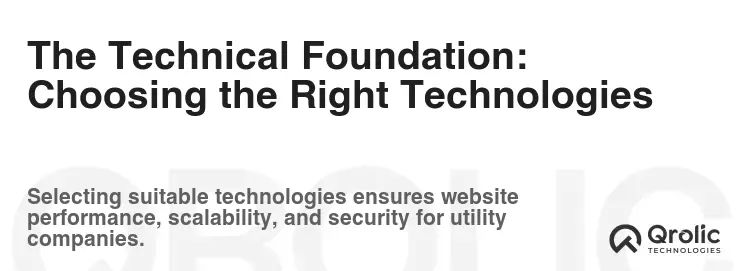
Selecting the right technologies is crucial for building a robust, scalable, and secure utility company website.
1. Content Management System (CMS): Empowering Content Creators
A CMS is essential for managing your website’s content efficiently.
- Popular CMS Options: wordpress, Drupal, and Joomla are popular CMS options that offer a wide range of features and customization options.
- Ease of Use: Choose a CMS that is easy to use and allows non-technical users to create and manage content.
- Security: Ensure that your CMS is secure and regularly updated to protect against vulnerabilities.
- Scalability: Choose a CMS that can scale to meet your growing needs.
2. Hosting: Ensuring Reliability and Performance
Your hosting provider plays a critical role in ensuring the reliability and performance of your website.
- Reliability: Choose a hosting provider with a proven track record of reliability and uptime.
- Performance: Ensure that your hosting provider offers sufficient bandwidth and storage to support your website’s traffic and content.
- Security: Choose a hosting provider with robust security measures to protect your website from cyber threats.
- Support: Ensure that your hosting provider offers responsive and helpful customer support.
3. Security: Protecting Sensitive Data
Security is paramount for utility company websites, which often handle sensitive customer data.
- SSL Certificates: Install SSL certificates to encrypt data transmitted between your website and users’ browsers.
- Firewalls: Implement firewalls to protect your website from unauthorized access.
- Regular Security Audits: Conduct regular security audits to identify and address potential vulnerabilities.
- Data Encryption: Encrypt sensitive data, such as customer passwords and payment information.
Optimizing for Search Engines: Making Your Website Discoverable
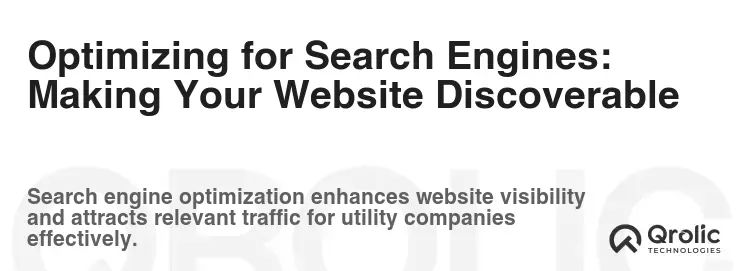
Search engine optimization (SEO) is essential for making your website discoverable to potential customers.
1. Keyword Research: Understanding Your Audience’s Language
Identify the keywords that your target audience is using to search for information related to your services.
- Tools for Keyword Research: Google Keyword Planner, SEMrush, and Ahrefs are popular tools for keyword research.
- Long-Tail Keywords: Focus on long-tail keywords, which are longer and more specific phrases that users are more likely to use when they are closer to making a decision.
- Local SEO: Optimize your website for local search by including your city and state in your keywords and content.
2. On-Page Optimization: Making Your Website Search Engine Friendly
Optimize your website’s content and structure to make it more search engine friendly.
- Title Tags: Optimize your title tags with relevant keywords.
- Meta Descriptions: Write compelling meta descriptions that accurately describe your website’s content.
- Header Tags: Use header tags (H1, H2, H3, etc.) to structure your content and highlight important keywords.
- Image Optimization: Optimize your images by using descriptive file names and alt text.
- Internal Linking: Link to other relevant pages on your website to improve navigation and SEO.
3. Off-Page Optimization: Building Authority and Reputation
Build authority and reputation by earning backlinks from other reputable websites.
- Link Building: Earn backlinks from other websites in your industry.
- Social Media: Promote your website and content on social media.
- Online Directories: List your website in relevant online directories.
4. Content Marketing: Creating Valuable and Engaging Content
Create valuable and engaging content that attracts and retains customers.
- Blog Posts: Write informative and engaging blog posts on topics related to energy efficiency, safety, and other relevant issues.
- Infographics: Create visually appealing infographics that present complex information in an easy-to-understand format.
- Videos: Produce videos that demonstrate your products or services, answer customer questions, or share company news.
Ready to Build Your Next Project?
Let’s turn your ideas into a powerful digital solution. Contact us today to get started with expert web development and design services.
Beyond the Launch: Maintaining and Improving Your Website
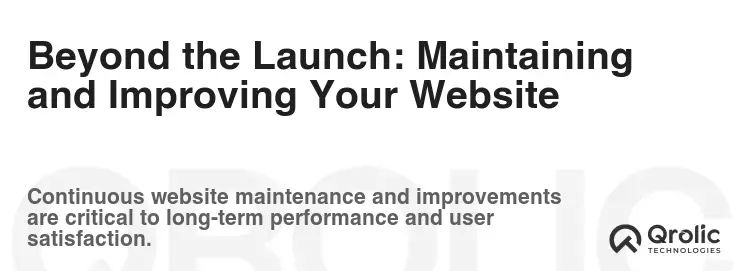
Launching your website is just the beginning. It’s essential to maintain and improve your website to ensure that it remains effective and relevant.
1. Regular Updates: Keeping Your Website Fresh and Secure
Regularly update your website’s content, software, and security measures.
- Content Updates: Keep your website’s content fresh and up-to-date by adding new information, updating existing information, and removing outdated information.
- Software Updates: Regularly update your CMS, plugins, and other software to ensure that they are secure and functioning properly.
- Security Updates: Stay informed about the latest security threats and vulnerabilities and implement appropriate security measures to protect your website.
2. Performance Monitoring: Ensuring Optimal Speed and Uptime
Monitor your website’s performance to ensure that it is loading quickly and consistently.
- Website Speed Tests: Use website speed test tools to identify areas where your website can be optimized for speed.
- Uptime Monitoring: Monitor your website’s uptime to ensure that it is available to users.
- Error Monitoring: Monitor your website for errors and fix them promptly.
3. User Feedback: Understanding Customer Needs and Preferences
Solicit user feedback to understand customer needs and preferences.
- Surveys: Conduct online surveys to gather feedback on your website’s usability, content, and functionality.
- User Testing: Conduct user testing sessions to observe how users interact with your website and identify areas for improvement.
- Analytics: Analyze website analytics data to understand how users are using your website and identify areas where they are struggling.
4. A/B Testing: Optimizing for Conversions
Conduct A/B tests to optimize your website for conversions.
- A/B Testing Tools: Use A/B testing tools to test different versions of your website and identify which versions perform best.
- Testing Elements: Test different elements of your website, such as headlines, images, calls to action, and page layouts.
- Data Analysis: Analyze the results of your A/B tests to identify which changes are most effective in improving conversions.
The Future of Utility Websites: Trends to Watch
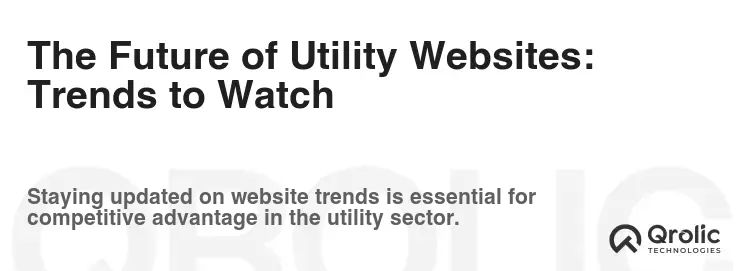
The landscape of Web Development is constantly evolving, and utility companies need to stay ahead of the curve to provide the best possible online experience.
1. Artificial Intelligence (AI): Enhancing Customer Service and Efficiency
AI is transforming the way utility companies interact with customers.
- Chatbots: Use chatbots to provide 24/7 customer support and answer common questions.
- Personalized Recommendations: Use AI to provide personalized recommendations to customers based on their energy usage and preferences.
- Predictive Analytics: Use AI to predict energy demand and optimize grid operations.
2. Internet of Things (IoT): Connecting Devices and Data
The IoT is connecting devices and data in new ways.
- Smart Meters: Use smart meters to collect real-time data on energy consumption.
- Smart Appliances: Integrate with smart appliances to allow customers to control their energy usage remotely.
- Predictive Maintenance: Use IoT sensors to monitor the condition of equipment and predict maintenance needs.
3. Blockchain Technology: Improving Security and Transparency
Blockchain technology is improving security and transparency in the energy industry.
- Secure Data Storage: Use blockchain to securely store and manage customer data.
- Energy Trading: Use blockchain to facilitate peer-to-peer energy trading.
- Supply Chain Management: Use blockchain to track the origin and movement of energy resources.
Qrolic Technologies: Your Partner in Building Exceptional Utility Websites

At Qrolic Technologies (https://qrolic.com/), we understand the unique challenges and opportunities facing utility companies in the digital age. We specialize in utility website development, energy company web design, and service provider website design, and we’re committed to helping you build a website that meets the needs of your customers and your business.
Our Expertise
- User-Centered Design: We prioritize user experience and create websites that are easy to use, informative, and engaging.
- Mobile-First Approach: We ensure that your website is fully responsive and optimized for mobile devices.
- Robust Functionality: We provide the essential tools and resources that customers need to manage their accounts, report issues, and learn more about your services.
- SEO Optimization: We optimize your website for search engines to ensure that it is discoverable to potential customers.
- Ongoing Support: We provide ongoing support and maintenance to ensure that your website remains effective and relevant.
Our Services
- Website Design and Development: We create custom websites that meet the specific needs of your utility company.
- CMS Implementation: We implement and customize popular CMS platforms, such as WordPress, Drupal, and Joomla.
- SEO Services: We provide a full range of SEO services to improve your website’s ranking in search results.
- Content Marketing: We create valuable and engaging content that attracts and retains customers.
- Website Maintenance: We provide ongoing website maintenance to ensure that your website remains secure, up-to-date, and functioning properly.
Why Choose Qrolic Technologies?
- Industry Expertise: We have extensive experience working with utility companies and understand the unique challenges they face.
- Customer-Focused Approach: We are committed to providing exceptional customer service and building long-term relationships with our clients.
- Results-Driven Solutions: We focus on delivering results that help our clients achieve their business goals.
- Transparent Communication: We maintain open and transparent communication throughout the entire project.
Contact Qrolic Technologies today to learn more about how we can help you build an exceptional website for your utility company. Let us help you transform your online presence and empower your customers. With our expertise in utility website development, energy company web design, and service provider website design, we can help you achieve your digital goals.

